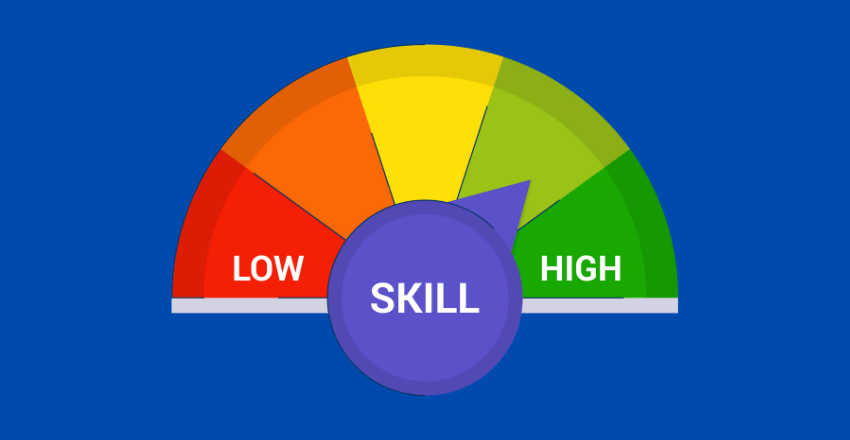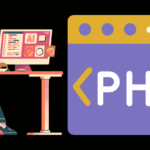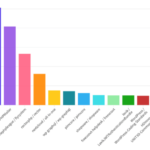
Assessing PHP Developer Skills goes beyond code proficiency; it delves into adaptability, understanding of modern frameworks, and a commitment to continuous learning.
So, let’s get started with this skill assessment for PHP devs.
Why Assessing PHP Developer Skills is Important
Assessing the skills of PHP developers is an essential step in the hiring process for any PHP development project. Evaluating PHP coder skills ensures that you hire developers who possess the necessary competencies to deliver quality work and meet project timelines.
Without assessing PHP developer skills, there is a risk of selecting candidates who lack the required technical or non-technical skills, resulting in suboptimal project outcomes. Proper evaluation of PHP developer skills helps avoid such scenarios, enabling you to identify top talents for your project.
Understanding the PHP Developer Competency Matrix
Assessing the skills of a PHP developer can be a daunting task, especially if you are not sure what competencies to evaluate. This is where a PHP developer competency matrix can come in handy. A PHP developer competency matrix is a tool that provides a comprehensive list of technical and non-technical skills that a PHP developer should have.
The matrix is designed to help assess the proficiency levels of developers in each competency area. The results of an assessment using the PHP developer competency matrix can help identify a candidate’s strengths and weaknesses, allowing you to make informed hiring decisions.
Competency Area | Description |
|---|---|
| PHP Syntax | Understanding of the basic syntax and structure of PHP programming language. |
| Object-Oriented Programming (OOP) | Ability to write object-oriented code and implement OOP principles in PHP. |
| Database Management and SQL | Knowledge of database management systems and experience with SQL queries. |
| Web Development Frameworks | Familiarity with PHP Web Development Frameworks such as Laravel, Symfony, or CodeIgniter. |
| Version Control (Git) | Experience with version control systems, specifically Git, and understanding of common Git workflows. |
| Development Tools and Environment | Knowledge of development tools such as IDEs, text editors, and command-line interfaces, and experience with configuring development environments. |
| Problem Solving and Analytical Skills | Ability to identify and analyze problems and develop effective solutions. |
| Teamwork and Communication | Ability to work collaboratively with team members and communicate effectively. |
To create a customized PHP developer competency matrix for your organization, you can start by identifying the key competencies that align with the specific requirements of your project. It is also important to consider the level of experience required for each competency area and tailor the matrix accordingly.
By using a PHP developer competency matrix, you can ensure that you are assessing candidates in a structured and objective manner. This can significantly improve the quality of your hiring decisions and lead to the selection of highly skilled PHP developers.
Creating a Customized PHP Skill Matrix for Developers
When it comes to assessing the skills of PHP developers, a customized skill matrix is an excellent tool for the job. Creating a personalized matrix allows you to evaluate candidates based on the specific skills required for your project and organization. Here are the steps you should follow to create your own PHP skill matrix for developers:
- Identify the competencies: First, determine the key competencies required for your PHP development project. These might include technical skills like experience with PHP frameworks and version control systems, as well as non-technical skills like communication, problem-solving, and teamwork.
- Define the proficiency levels: Next, define the different levels of proficiency for each competency. For example, proficiency levels for technical skills might range from “beginner” to “expert,” while non-technical skills might be ranked from “basic” to “advanced.”
- Create a scoring system: Once you have identified the competencies and proficiency levels, create a scoring system that assigns points for each level of proficiency. This will help you objectively evaluate candidates based on their skills.
- Assign weights: Decide how much each competency should be weighted based on its importance to your project and organization. For example, technical skills might be weighted more heavily than non-technical skills if they are critical for the success of your project.
- Test the matrix: Finally, test the matrix by using it to assess the skills of current or past PHP developers within your organization. This will help you identify any flaws in the matrix and refine it for better accuracy.
By following these steps, you can create a customized PHP skill matrix for developers that aligns with your specific requirements. This will help you accurately evaluate the skills of potential candidates and identify the top talents for your PHP development project.
Defining Key Competencies for PHP Developers
When conducting a skill assessment for PHP developers, it is essential to define the key competencies that will be evaluated. This ensures that the assessment is focused and comprehensive, and the selected candidate possesses all the necessary skills to succeed in the role. Below are the technical and non-technical skills that should be included in a PHP developer skill assessment.
Technical Skills
1. Proficiency in PHP Language: A PHP developer should have an in-depth understanding of the PHP language and its syntax, including the ability to write and troubleshoot complex code.
2. Knowledge of MVC Frameworks: Knowledge of popular MVC frameworks like Laravel, CodeIgniter, Yii, and Symphony, is essential for a PHP developer.
3. Database Management: A PHP developer should have experience with database management and be proficient in working with MySQL or other relational databases.
4. Knowledge of Front-end Technologies: A PHP developer should have an understanding of front-end technologies such as HTML, CSS, and JavaScript, and be able to integrate them into the PHP code.
5. Knowledge of Version Control: A PHP developer should have knowledge of version control tools like Git, SVN, and Bitbucket.
Non-Technical Skills
1. Problem-Solving: A PHP developer should be an excellent problem solver, capable of quickly identifying issues and providing effective solutions.
2. Attention to Detail: A PHP developer should have a keen eye for detail and be able to spot errors in code and design.
3. Communication Skills: Excellent communication skills are essential for a PHP developer, including the ability to explain technical concepts to non-technical stakeholders.
4. Time Management: A PHP developer should be able to manage their time efficiently, prioritize tasks effectively, and meet deadlines.
5. Collaboration: A PHP developer should be a good team player and be able to collaborate with designers, developers, and other stakeholders.
Assessing these competencies will ensure that the selected candidate has all the necessary skills to succeed as a PHP developer. In the next section, we will discuss tips and techniques for conducting effective PHP developer skill assessments.
Conducting Effective PHP Developer Skill Assessments
Evaluating PHP coder skills is a critical process that requires a structured approach to be effective. Here are some tips and techniques to help you conduct accurate and insightful assessments:
Define the Competencies
Start by defining the key competencies that should be assessed, which should align with the technical and non-technical requirements of the project. Clearly articulate what each competency entails and create a rubric or scoring system that outlines the different levels of proficiency.
Use Multiple Assessment Techniques
Avoid relying solely on technical interviews or coding challenges. Instead, use a combination of techniques, such as behavioral interviews, situational judgment tests, and work samples, to get a holistic view of the candidate’s skills and abilities. This can help you make more informed decisions and minimize bias.
Collaborate with Other Team Members
Encourage other team members, such as senior developers or project managers, to be involved in the assessment process. This can provide different perspectives and insights that you may not have considered, leading to a more accurate evaluation of the candidate’s skills.
Provide Clear Feedback
After the assessment is completed, provide clear and constructive feedback to the candidate. This can help them understand where their strengths and weaknesses lie and what they can do to improve. It also reflects positively on your organization and can help build a strong employer brand.
Continually Evaluate and Improve the Process
The assessment process should be an ongoing effort, not a one-time event. Continually evaluate and improve the process based on feedback and results, looking for ways to make it more objective and effective.
By following these tips, you can conduct effective PHP developer skill assessments that result in the selection of highly skilled and qualified candidates for your PHP development projects.
Tools and Resources for Assessing PHP Developer Skills
When evaluating PHP coder skills, it is essential to have the right tools and resources at your disposal. Here are some helpful options:
Online Platforms
Online platforms like HackerRank and Codility offer coding challenges and assessments for PHP developers. These platforms can be used to evaluate coding skills, problem-solving abilities, and overall programming aptitude. They provide standardized evaluations that can be compared among multiple candidates.
Reference Materials
There are a plethora of reference materials available online that can help assess the skills of PHP developers. This includes documentation on various PHP frameworks, coding standards, and best practices. These resources can be used to test a candidate’s knowledge of industry standards and assess their ability to apply that knowledge in practical coding situations.
Coding Challenges
Coding challenges are a great way to evaluate the skills of PHP developers. These challenges can be customized to assess specific competencies such as problem-solving, algorithm design, and code optimization. They can also be used to evaluate a candidate’s ability to work under pressure and meet deadlines.
Peer Reviews
Peer reviews can be used to assess the skills of PHP developers in a collaborative setting. By having other team members evaluate a candidate’s code and provide feedback, you can gain a more comprehensive understanding of their skills and working style. This approach also promotes teamwork and collaboration among team members.
By using the right tools and resources, evaluating the skills of PHP developers can be both efficient and effective. It can result in the selection of top-tier developers for your PHP development projects.
Best Practices for Identifying Top PHP Developer Talents
Identifying top PHP developer talents can be challenging, but using a customized PHP skill matrix for developers can simplify the process. Here are some best practices for using the skill matrix approach:
- Define the competencies: Before creating a skill matrix, it’s essential to define which competencies are most valuable for the project. This could include technical skills like coding ability or experience with specific frameworks, as well as non-technical skills like communication, problem-solving, and teamwork.
- Use objective evaluation metrics: When assessing candidates, it’s crucial to use objective metrics that are specific to the defined competencies. This could include coding challenges, behavioral interviews, or hands-on project work.
- Assign weights to competencies: Not all competencies are equal in importance. Assigning weights to each skill helps to prioritize the most critical competencies in the assessment process.
- Compare candidates with the matrix: By using the customized skill matrix to evaluate candidates, it becomes easier to compare their skills and qualifications objectively. This helps to identify top talents for the project.
- Substantiate results with evidence: After completing the assessment process, it’s vital to substantiate the results with evidence. This could include project work, coding samples, or reference checks. This helps to ensure that the candidates selected are truly top talents for the project.
By following these best practices, organizations can use the PHP skill matrix for developers to identify the best candidates for their PHP development projects.
Benefits of Using a Matrix Approach for Assessing PHP Developer Skills
In the realm of assessing PHP developer skills, utilizing a matrix approach offers a plethora of advantages for organizations on the hunt for premier talent. Delving into the merits of a PHP developer skills matrix, we find:
Firstly, the matrix furnishes a uniform method for gauging the prowess of PHP developers, ensuring evaluations remain impartial. Secondly, it simplifies the recruitment journey by laying down unequivocal criteria for appraising aspirants. Furthermore, the matrix’s design permits tailoring the assessment to resonate with the distinct demands of both the enterprise and the project at hand. Notably, adopting a matrix-centric strategy can culminate in roping in adept PHP developers, amplifying the odds of a triumphant project outcome. Additionally, the matrix empowers firms to pinpoint domains where developers might require further coaching or backing, paving the way for sustained professional evolution and expansion.
In essence, the PHP developer skills matrix methodology emerges as an indispensable asset for entities eager to scout the crème de la crème for their PHP development endeavors. By homogenizing the evaluation procedure and laying out lucid benchmarks for scrutinizing contenders, enterprises are poised to make enlightened recruitment choices, leading to the onboarding of supremely competent PHP developers.
The Future of Assessing PHP Developer Skills
As technology continues to advance, the realm of PHP development inevitably shifts alongside it. Consequently, the competencies PHP developers need are in a state of flux, necessitating that our assessment methods adapt accordingly. Looking ahead, the tools and techniques for evaluating PHP developer skills are poised to become even more intricate, ensuring only the most adept developers are pinpointed swiftly and precisely.
Interestingly, one burgeoning domain anticipated to shape the future of skill assessments is the integration of AI and machine learning. Through predictive analytics, companies can gauge a candidate’s future potential based on their historical performance, pinpointing the most fitting candidates for specific roles. Moreover, this approach can counteract unconscious biases, fostering a more equitable hiring landscape.
Furthermore, refinements to the PHP developer competency matrix are on the horizon. As we gather more data on requisite skills for distinct projects, the matrix will increasingly cater to individualized needs, enhancing the precision of candidate evaluations. Additionally, as novel competencies, like expertise in emerging technologies such as blockchain, come to the fore, developers will need to diversify their skillsets.
Lastly, innovations like virtual and augmented reality might redefine how we assess PHP developer capabilities. By simulating tangible coding scenarios, these technologies can offer candidates a platform to showcase their prowess in lifelike conditions. Such immersive evaluations would grant companies a more authentic glimpse into a candidate’s potential contributions to specific projects.
Conclusion
Assessing PHP developer skills is crucial for pinpointing top talents for PHP development projects. Furthermore, using a matrix approach to gauge both their technical and non-technical competencies not only ensures objective evaluations but also streamlines the hiring process.
By tailoring a PHP skill matrix to the specific needs of the project and organization, businesses can more effectively evaluate candidates and make well-informed decisions in selecting top talents.
With the ever-evolving landscape of technology and methodologies, staying abreast of the latest tools and resources for assessing PHP developer skills becomes paramount. Consequently, companies that adeptly employ the PHP developer skills matrix approach stand to benefit from the expertise of highly skilled developers, ensuring top-tier PHP development outcomes.
Start Assessing PHP Developer Skills with a Matrix Approach Today
Don’t wait any longer! Start assessing the skills of your PHP developer candidates by implementing a skills matrix approach. Follow the best practices and tips shared in this article to streamline your hiring process and ensure that you select the best talents for your PHP development projects.
FAQs
1. What’s the best approach to evaluate a PHP developer’s technical expertise?
Hands-on Testing: Always include practical coding tests or challenges to directly gauge a developer’s PHP proficiency and problem-solving abilities.
2. How important is familiarity with PHP frameworks in skill assessment?
Framework Knowledge: While core PHP skills are vital, understanding popular frameworks like Laravel or Symfony often indicates a developer’s versatility and modern approach.
3. Can soft skills play a role in assessing a PHP developer’s capabilities?
Soft Skills Significance: Absolutely! Communication, teamwork, and adaptability complement technical skills, ensuring smooth project execution and collaboration.
4. How can past projects be used in the assessment process?
Portfolio Review: Examining a developer’s past projects provides insights into their real-world experience, coding standards, and ability to handle project complexities.
5. Are there any tools or platforms to aid in skill assessment?
Assessment Platforms: Utilize platforms like Codility or HackerRank to standardize testing and get an objective measure of a developer’s coding skills.
Ashley is an esteemed technical author specializing in scientific computer science. With a distinguished background as a developer and team manager at Deloit and Cognizant Group, they have showcased exceptional leadership skills and technical expertise in delivering successful projects.
As a technical author, Ashley remains committed to staying at the forefront of emerging technologies and driving innovation in scientific computer science. Their expertise in PHP web development, coupled with their experience as a developer and team manager, positions them as a valuable resource for professionals seeking guidance and best practices. With each publication, Ashley strives to empower readers, inspire creativity, and propel the field of scientific computer science forward.



![How to use Cursor AI to write PHP Code[Example]](https://hirephpdeveloper.dev/wp-content/uploads/2025/03/How-to-use-Cursor-AI-to-write-PHP-Code-1-150x150.png)



